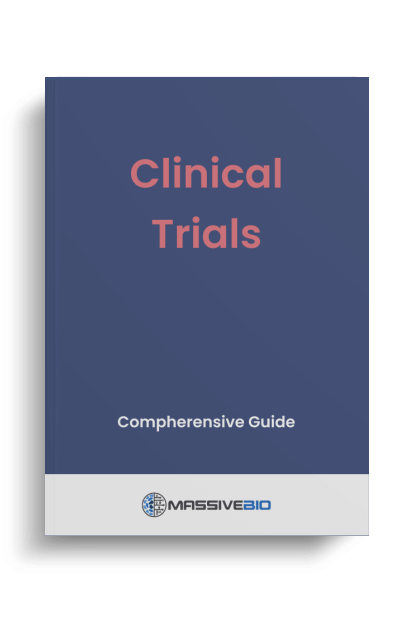A Guide To Clinical Trials
This actionable clinical trials guide lays out the considerations when managing your diagnosis to help you with the process and to make sure no step is missed along the way.
Understand
Clinical Trials
Clinical trials test new, promising methods of diagnosing, preventing, or treating cancer, after significant research and trial design has been completed. Clinical trials can also be used to learn if a new treatment is more effective or has less harmful side effects than the standard treatment.
All clinical trials go through phases 0-IV. Phase 0 is the first stage and begins with a few participants. When trials get to phase IV, that means the drug or treatment being studied has been approved by the FDA and is in the last phase before being approved for the general public.
Enrolling in a
Clinical Trial
Participation in a clinical trial gives you access to the latest treatment, not yet available to the general public. Patients who enroll in trials also have additional care and attention by medical staff, because safety and effects from treatment are monitored closely.
Those who participate in a clinical trial also help advance cancer research for other patients affected by the same disease as them. Participating in a clinical trial not only progresses much needed research but gives patients access to these new innovative therapies years before the general population.
How We
Can Help
At Massive Bio, our mission is to enable cancer patients to have equal access to cutting-edge therapies and clinical trials, regardless of their location and/or financial stability. Our Artificial Intelligence (AI) powered Clinical Trial Matching System connects patients and their treating oncologists to clinical trials according to their unique cancer case.
We enlist dedicated staff to collect medical records and treatment history and match patients to eligible trials near their home. We provide full support throughout your enrollment process to ensure logistics are handled so you can concentrate on your health.




